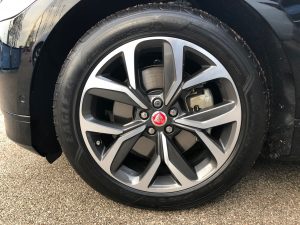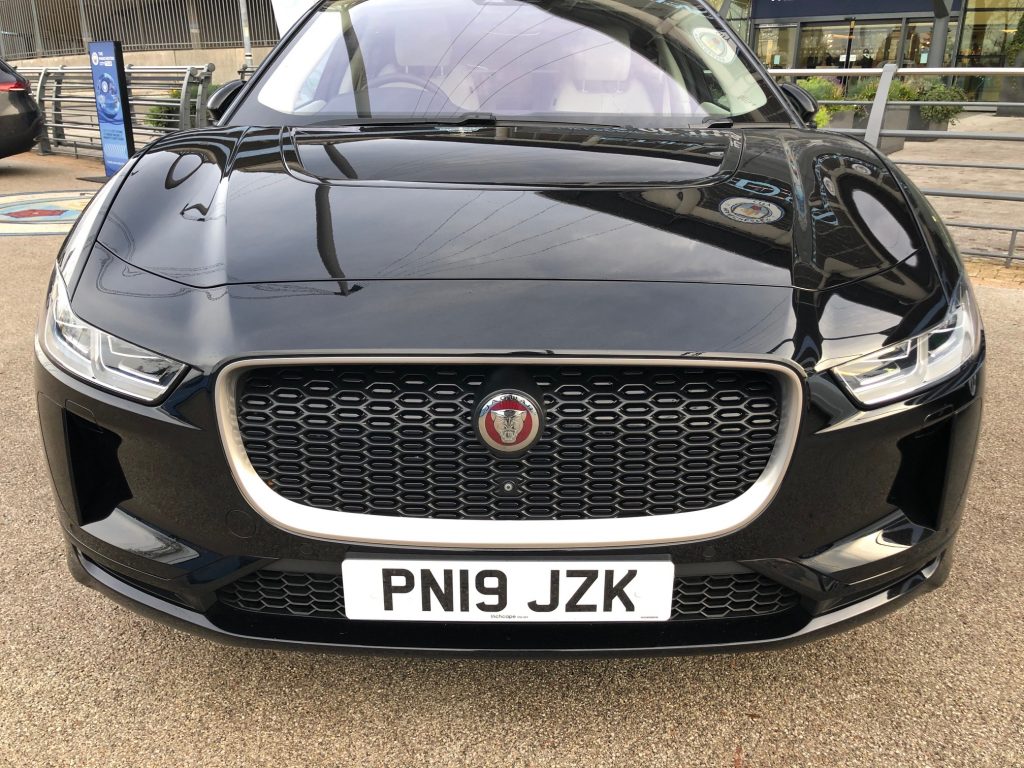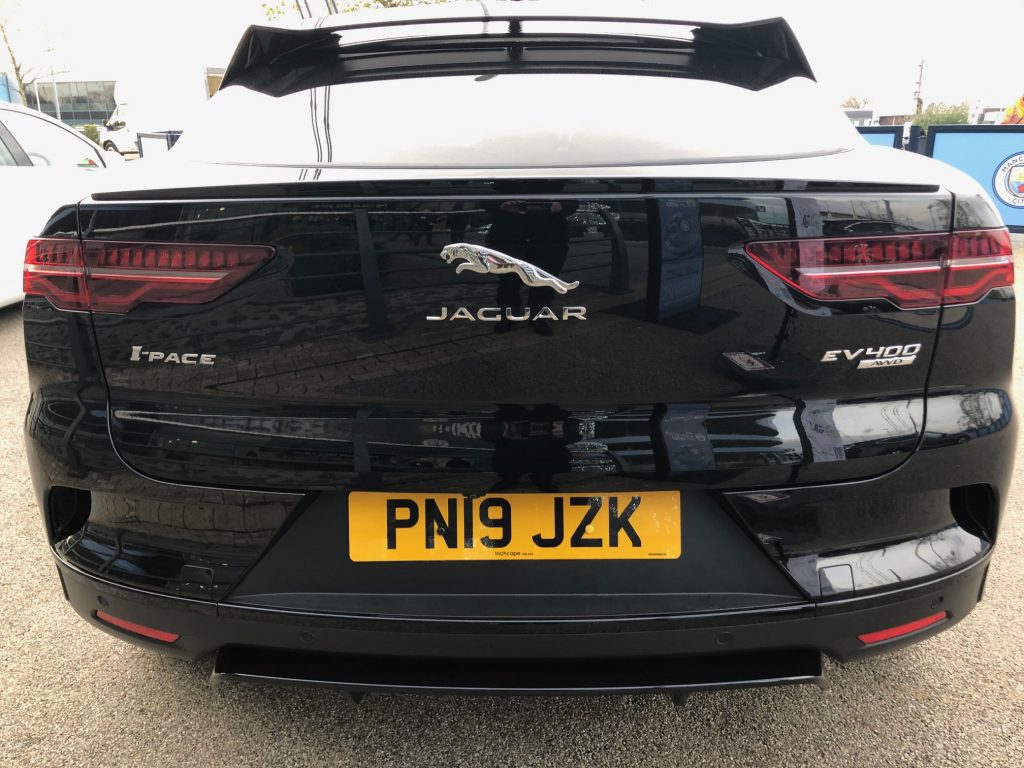
Mon-Fri 9am-5pm
Talk to our friendly electric car leasing experts now: 01942 910 001This website uses cookies to ensure you get the best experience. Learn more
Electric car lease review: Jaguar I-PACE ESTATE 294kW EV400 HSE 90kWh 5dr Auto

How does an electric car battery work? What do I need to know?
Do all electric cars charge at the same rate? Is it true that you supercharge an EV? What does all this “kW” and “kWh” actually mean?
The growth of electric vehicles is phenomenal, and while 2019 will be known as the seminal year for alternative fuels, 2020 will be the crucial year for electric car (and van) growth. Not only are attitudes changing towards this new form of fuel but changes across the UK this year will have some significant impact – clean air zones, company car tax changes and policy changes.
However, what is key is that customers are not forced into EVs; manufacturers, suppliers, leasing brokers and policymakers need to work together to ensure that they receive the right information in order to get a solution which meets their needs and requirements. Ultimately, we all want customers to be driving an EV which is both right for them and which is truly enjoyable; this is not an excuse to tax personal or business customers further!
What does kW and kWh mean on an electric car?
The move away from petrol and diesel can create confusion; what does all the terminology means on these new cars? The “kWh”, or kilowatt hours, might be similar to what you would see on an electricity bill. Indeed the kWh shows you on your bill how much energy you have used.
Essentially a kWh is a unit of measurement. In the context of an EV, this refers to the battery’s capacity and will provide some indication as to the vehicle’s range. Taking this example, the Jag I-Pace, you will note that the CAP description notes “90 kWh” – this is because the battery has a 90 kWh capacity. However, there is a slight nuance, in that you need to distinguish between the capacity of the battery and the usable size of the battery. In this example, the Jaguar has a usable battery capacity of 84.7 kWh.
And there will be other factors to consider: the bigger the battery capacity, the longer the range will be. In addition, you also have “kW” (kilowatt) which appears in the car’s title. This refers to the engine power. Again, the general rule is that the more kW a car produces, the faster the car will accelerate.
Battery range - how do I know how far an electric car will travel?
While the kW and kWh should give you some indication as to the car’s abilities, you do need to make sure you fully understand how the car performs. Due to testing procedure changes, via WLTP (the Worldwide Harmonised Light Vehicle Test Procedure), you need to ask about a vehicle’s electric range taking into account driving styles, behaviours and weather conditions.
For example, the Jaguar has a WLTP pure electric range of 292 miles but this will not take into account all factors. If you were to have 20” alloys, this would remove about 20 miles of range and a further 10 miles if you elect to have 22” alloys.
You also have to consider other elements like air conditioning, the outside temperature, and your driving style. Using the Jaguar I-Pace HSE as an example, this would only have a range of about 175 miles if you were driving around town (average speed of about 20mph), in 0 degrees, with your heating on and using the 22” alloy wheels. It is important to consider the full picture.

The less economical 20" alloy wheels on the Jag I-Pace
Do all EVs charge in the same time?
This is not the case. Each EV will charge at a certain power AC or DC. This is important to identify, as you will plug your vehicle into a home or commercial charge point. Each charge point has a different output; for example, 3kW, 7kW, 22kW, 50kW and 150kW.
The more powerful the charge point, the quicker the car will charge (subject to its onboard charger). In case of the Jaguar, this will only charge up to a maximum of 7kW AC. If you plugged this into a faster 22kW commercial charge point, like the e-car lease ChargePoint CP4323-UK Dual Port Wall Mount, this would not charge the I-Pace any quicker. This means that at 7kW, it would take around 13 hours to fully charge the electric Jaguar (0-100%).
So can I “supercharge” it?
Each vehicle will have a fastcharge port, generally the CCS (Combined Charging System) with some brands using CHADeMO, but again each vehicle will only be able to charge at a certain power DC.
While some of the Tesla-specific charge points are quoting anywhere from 150-300kW (depending on country and location), only a Tesla can connect to these charge points. Additionally, not all the vehicles can charge at this rate; for example the Jaguar I-Pace, via the CCS, will charge up to a maximum of just over 100kW.
While this means 0-80% charge in a fantastic 40 minutes, if you were to plug this into an ultra-rapid charge point (150kW or above) it would not charge it any quicker.
When you look at charging, the simplest way is to analyse the battery capacity (i.e. 90 kWh) and divide this by the charge power (7Kw) – in this example, 90 divided by 7 = 13. Hence, a 13-hour charging time.
Reviewing the electric Jaguar I-Pace
 The front of the Jag I-Pace
The front of the Jag I-Pace The rear of the Jag I-Pace
The rear of the Jag I-PaceIn terms of the car shown, the Jaguar I-PACE ESTATE 294kW EV400 HSE 90kWh 5dr Auto, this is based on the following configuration:
- Santorini Black Metallic Paint
- Windsor leather - Ebony with ebony/ebony interior + sport seats
- Gloss black trim finisher
- 20" 5 spoke gloss dark grey with contrast diamond turned finish alloy wheels - style 5068
As standard the luxury car includes 18-way electric heated and cooled seats with memory, passive suspension, heated steering wheel, 20” alloy wheels, Windsor leather upholstery, climate control, secure tracker, heated front windscreen, heated washer jets, heated rear window, rain sensing wipers, solar attenuating front and rear windscreen, ASPC, DSC, hill launch assist, apply car play, Bluetooth, 360 degree surround camera and parking system, adaptive cruise control, blind sport assist, lane keep assist, park assist, traffic sign recognition, push button starter, 10” touch screen pro, navigation pro, auto dimming interior view mirror, power folding and heated door mirrors with approach lights, home/public charging cables, DAB radio, Meridian surround sound, automatic headlights, LED lights, air quality sensor, emergency braking, 60/40 split folding seats, keyless entry, intrusion alarm and sensor.
In terms of additional options, consider adding privacy glass, carpet mats, fixed panoramic sunroof and the activity key.
On the technical side, company car and business users can note the P11d at £75,640.00 and CO2 at 0g/km. The 84.7kWh usable battery delivers 292 miles (WLTP), 0-62 times of 4.8 seconds, top speeds of 124mph and 400ps. Service intervals on a Jag I-Pace are every 24months or 21,000 miles, whichever lands sooner.
So, would you select the I-Pace as your next electric car leasing option? Or would the Mercedes EQC or Audi e-Tron be your preference?
e-car lease work alongside these select finance companies:





e-car lease have a partnership and affiliation with:



Register & get new deals weekly
 Exclusive offers
Exclusive offers
 Electric-only deals
Electric-only deals
 Never miss out
Never miss out

Talk to one of our experts
01942 910 001 Email usLeasing


© Copyright 2025 e-car lease. All rights reserved. e-car lease is a trading name of CarLease (UK) Ltd, e-car lease is a credit broker and not a lender. We are authorised and regulated by the Financial Conduct Authority. Registered No: 706617. BVRLA Membership No. 1471. Registered in England & Wales with Company Number: 09312506 | Data Protection No: ZA088399 | VAT No: 200422089 | Registered Office: Kings Business Centre, Warrington Road, Leigh, Greater Manchester, WN7 3XG
Made by morphsites®












